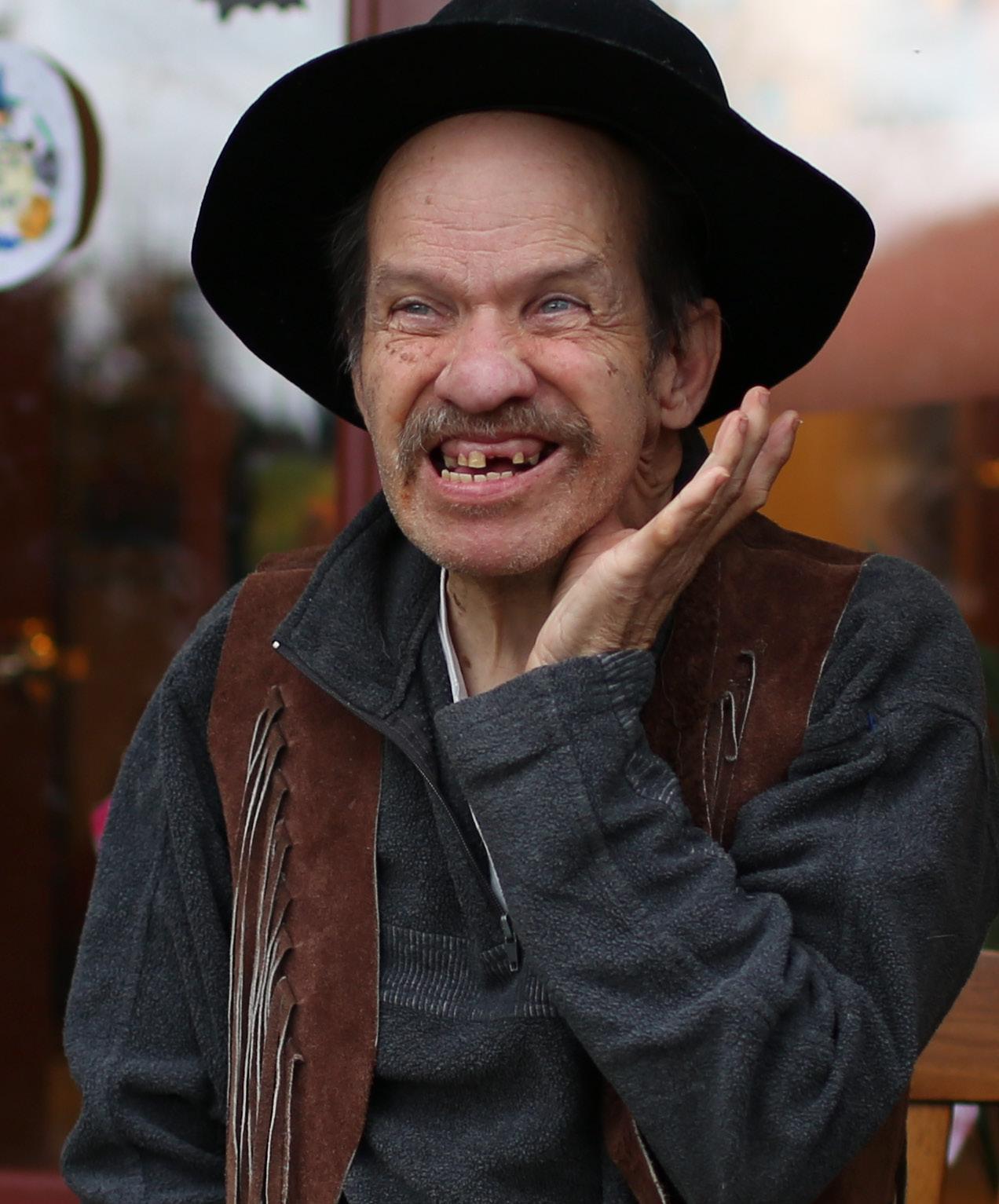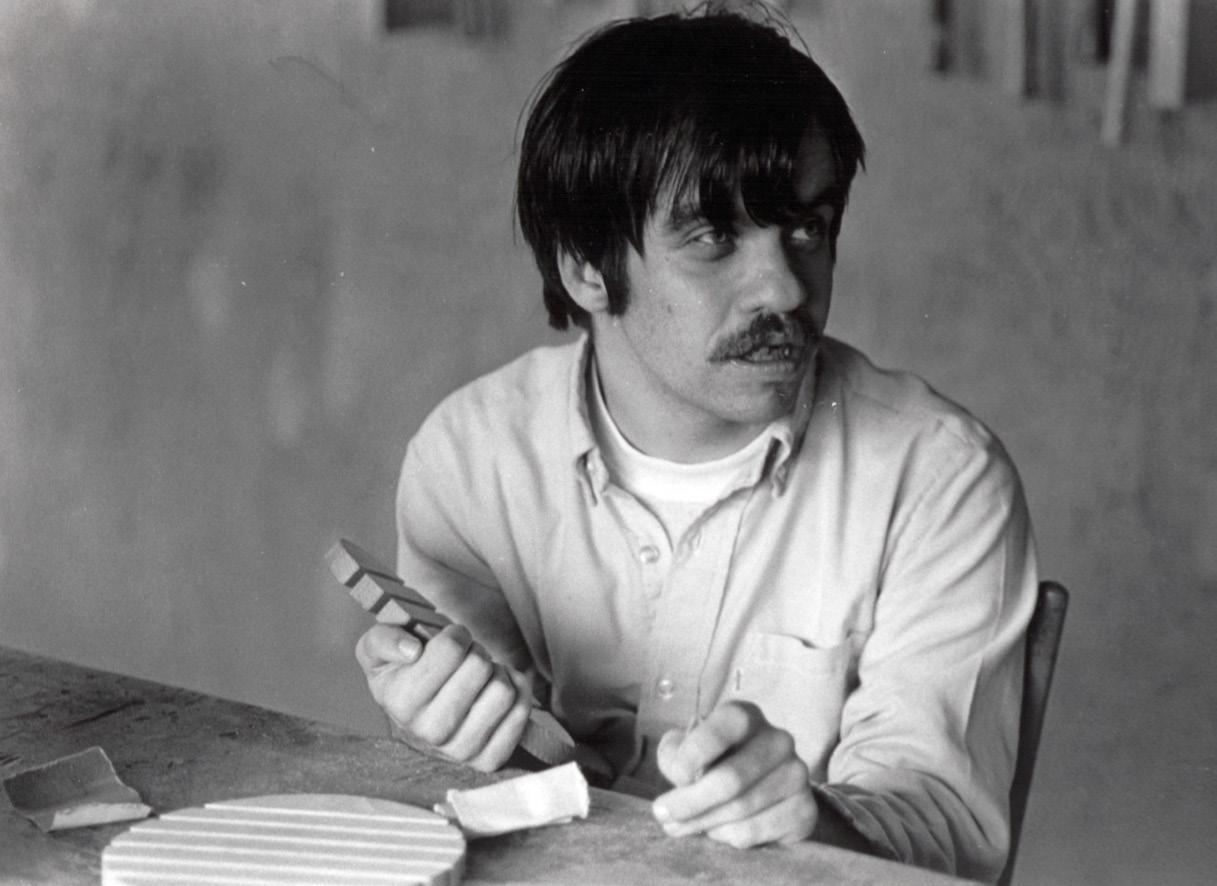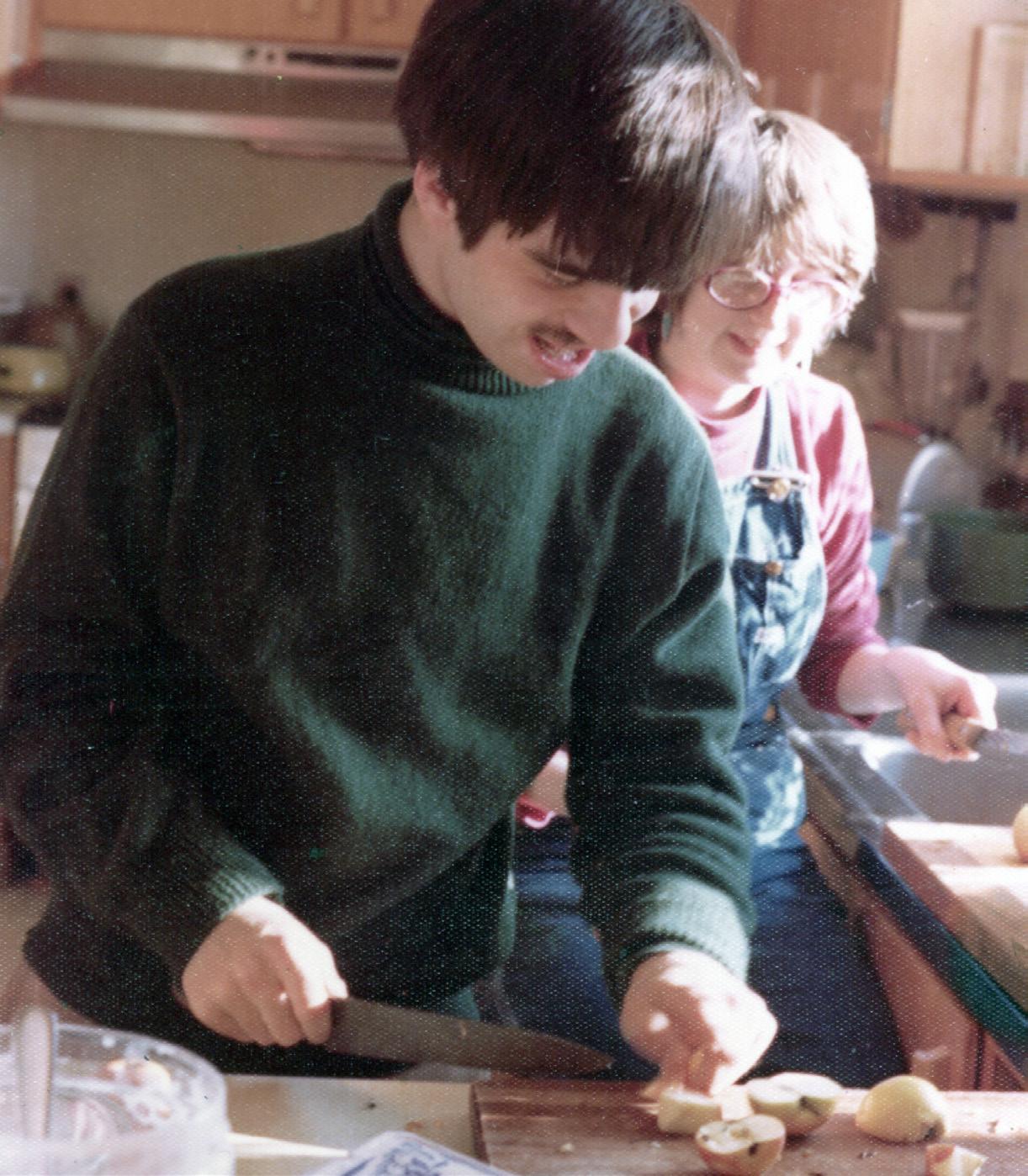
6 minute read
Kipp Deyo, January 28, 1954—May 14, 2024

Kipp Farrington Deyo was born on January 28, 1954 in Poughkeepsie, NY at Vassar Brothers Hospital. His mother, Arlene Deyo and father Jerome (Jerry) Deyo were married in the middle of World War II. When Kipp was born, the world was still in chaos.
His brother Eric, who is 2 1/2 years older, would lay in the same crib as his brother. Kipp took great fascination, smiling and reaching out to be close to Eric every time they were together.
After Kipp’s grandmother passed away in 1956, Kipp’s family inherited her television set, and kipp fell in love with baseball and western shows. Kipp also enjoyed sports. He played on a local little league baseball team, and once hit the ball just right; it went up and over the some nearby buildings. His brother taught him how to pitch a baseball.
At around 14 years old, Kipp went on a big adventure to Colorado to visit his uncle Bill. Kipp and his father went by plane, and the rest of his family drove the 2,000 miles. While in Denver, they saw all the Rocky Mountains, and they went on an all-day trip to “Frontier Days” in Cheyenne, Wyo. This was possibly the highlight of his lifelong affinity for his cowboy heroes.
One of Kipp’s other heroes was President John F. Kennedy. Kipp could pick him out of a crowd, would watch his speeches on TV, and even received a signed photograph.
Kipp’s mother, who was a major advocate for Kipp’s future, struggled to find a suitable and willing place to welcome her son; the family had received many rejections due to Kipp’s epilepsy. Jerry was working in the FDR library in Hyde Park at the time, and met many important individuals like First Lady Eleanor Roosevelt. He learned the first lady wrote a column in the Poughkeepsie Journal, and described Camphill Village Copake Sunny Valley Farm. Arlene knew this was the place she was looking for. The family scheduled an interview with Camphill Village Copake’s founder, Carlo Pietzner, in 1962.
Carlo referred them to Kipp’s first Camphill experience in Donegal Springs Pennsylvania, where he lived at Mt. Joy House. Kipp was part of the second batch of individuals to join Donegal Springs following the completion of a new house.
Kipp stayed at Mt. Joy for four years and then moved over to Beaver Run Special School, where he met one of his teachers—Andrew Hoy. Andrew said Kipp was one of the more well-behaved children. And while he was never able to learn to read or write, Kipp was a very lively child. He once went missing, and a group who went searching found him relaxing in the grass with the cows just before dark. Kipp stayed in Beaver Run until 1972, and moved to Camphill Village Copake a year later. His family was overjoyed.
Over the next 50 years, Kipp lived in a number of houses starting, with the farmhouse (now called Orchard) when the Village was only 10 years old. He stayed in the farmhouse for 17 years before moving to the bungalow (now called Ailinn) with the Briggs Family. He lived in Omaskos with Micheal Balcome , to whom he was very close; Columbine, Rock Maple, Aspen
with Monica Talaya; Arbutus with Sara White and her two young children; and most recently living in Undina with Seeya, Nico and their young child. The many younger coworkers who came to stay in the Village grew very fond of Kipp.
Although Kipp wasn’t able to verbalize his needs, he’s always been able to use gestures and other forms of communication in the community. Kipp thrived in this community setting, and always participated in just about every gathering, event, or concert—especially if dancing was involved. He attended our Sunday Festival of Offering every week and enjoyed dressing up for it. Hanging out in the coffee shop with his many friends. Kipp benefited from the rhythm of Camphill Village.
Kipp has worked in many different places in Camphill Village, but has spent the longest amount of time in our Woodshop. People around him said he was a consistent worker, and work was the highlight of his day.
In the home, tasks were not his strong suite, but his presence alone has always been the glue many have said have held the whole house together—even with many changes happening around him. He loved helping in the kitchen and would sometimes take the cooking utensils away from the cook and stir whatever was in the pot for the rest of the morning. He was very good with taking dishes and eating utensils from the table to the kitchen to be washed, and then helped very consistently for many years putting them in the dishwasher. He would clap his hands proudly after contributing.
Kipp also enjoyed fun therapies like horseback riding. He was very fond of animals, and combined with his interest in westerns, it was a wonderful match for him. Kipp also enjoyed therapeutic massages and music therapy lessons when he was able to pluck the lyre strings. And while he thoroughly enjoyed dancing to live music during our gatherings, he also liked peacefully listening to classical music in his house, as he had done with his father as a child.
Kipp loved hikes, playing games, singing and any type of outing or adventure. Arbutus House once took a vacation to Cooperstown to bring Kipp to the Baseball Hall of Fame. He’s been on bowling trips, aquarium trips, golfing,
and also on house vacation to Cape Cod, Mass. He never went swimming in the ocean, but enjoyed dipping his feet in and laughing when waves hit him on the shore.
Sara, his house leader, would also take Kipp to her children’s soccer practices and games. Sometimes after appointments, the two would sit at the local Dunkin’ Donuts so Kipp could watch the trucks pass by.
*This summary of Kipp’s life is an edited version of the one prepared by Sara White, who was very close to Kipp.












